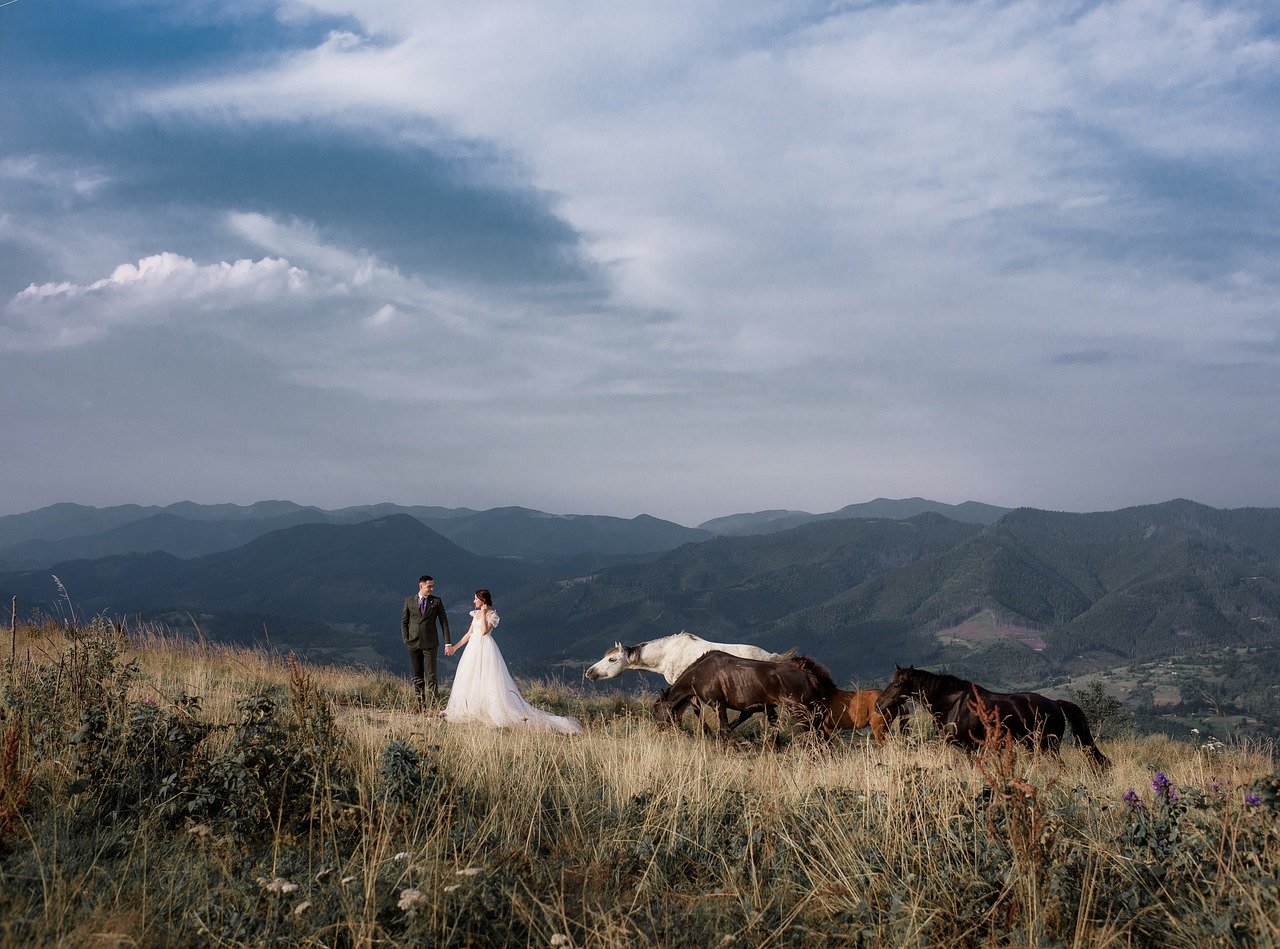Planning a wedding is an exciting journey that combines creativity, organisation, and personal touches. From setting a realistic budget to selecting the perfect venue and managing vendors, each step shapes the atmosphere of your special day.
This guide offers key tips on organising tasks, choosing reliable vendors, and prioritising what’s most meaningful, helping you create a memorable celebration with family and friends.
With thoughtful planning and a focus on what matters, you’ll be ready for a beautiful, stress-free wedding day that reflects your unique story.
Let's get straight to the point
Your wedding day is a beautiful celebration of love and commitment, and with some early planning and thoughtful organisation, it can be a seamless and memorable experience.
Start by booking essential vendors well in advance, establishing a realistic budget, and prioritising what's truly meaningful to you as a couple.
Carefully curate your guest list to keep the celebration intimate, and select a venue that complements your vision and is convenient for guests.
A wedding planner or day-of coordinator can help streamline logistics, allowing you to focus on enjoying the day.
Keep track of tasks with a detailed timeline, communicate clearly with vendors, and prepare backup plans for unexpected situations. Personal touches, like unique decor and meaningful traditions, will make the day uniquely yours.
Above all, centre your day around celebrating with loved ones and cherishing each moment together.
1. Start Your Planning Early

Starting early can ease the entire process, making it more enjoyable and less stressful. Early preparation allows you to book the best vendors, explore multiple options, and manage your budget efficiently. Planning well in advance ensures everything is handled with care and attention.
- Book popular venues and vendors early, as they are often reserved months, if not years, in advance.
- Allocate time for unforeseen circumstances, such as vendor cancellations or weather issues.
- Create a timeline that maps out key dates and tasks, from dress fittings to finalising the guest list.
2. Set And Stick To A Realistic Budget
Establishing a realistic budget is essential for effective wedding planning. Without a budget, costs can spiral, adding unnecessary stress. Ensure you have a clear understanding of your finances before making decisions.
- Identify priorities—determine which elements are most important, such as the venue, food, or photography.
- Account for smaller expenses like dress alterations, makeup trials, and transportation.
- Track spending with a spreadsheet or budgeting app to prevent overspending.
3. Curate A Guest List Carefully
The guest list influences almost every aspect of your wedding, from venue capacity to budget and catering. Thoughtfully selecting who to invite helps manage costs and ensures a more intimate celebration.
- Limit the guest list to those close to you and your partner.
- Avoid inviting out of obligation—focus on who you genuinely want there.
- Confirm RSVPs early so you can accurately finalise arrangements with your vendors.
4. Choose A Suitable Venue

Your venue sets the tone for the entire wedding and should comfortably accommodate your guest list. Choosing a location that aligns with your vision and budget is essential.
- Consider location convenience—select a place that’s accessible to most guests.
- If it’s an outdoor venue, account for the weather and prepare backup options.
- Understand venue policies on things like decorations, alcohol, and noise restrictions.
5. Hire A Wedding Planner Or Coordinator
A wedding planner can significantly reduce stress by handling the logistical details. If a full-time planner isn’t within budget, consider hiring a day-of coordinator.
- Planners handle vendor communications and ensure all details are managed.
- Day-of coordinators manage the wedding day’s flow, allowing you to relax and enjoy.
- Experienced planners have networks that can often save you money on vendor bookings.
6. Create A Timeline For Wedding Tasks
Organising a timeline helps you keep track of tasks and deadlines, ensuring everything is completed on time. This is particularly useful for keeping stress levels low as the big day approaches.
- Start with a list of essential tasks, like booking the venue and selecting attire.
- Divide the timeline into monthly or weekly tasks to stay on track.
- Include buffer time for tasks that may take longer than expected, like fittings and tastings.
7. Manage Vendor Selection Carefully
Selecting reliable vendors is essential for a seamless wedding experience. Take your time with research and meet vendors in person whenever possible.
- Request referrals from trusted sources or friends who’ve recently married.
- Meet vendors in person to ensure they understand your vision and expectations.
- Review contracts carefully for clear terms regarding deposits, cancellation policies, and timelines.
8. Have A Backup Plan For Weather
Weather can be unpredictable, especially if planning an outdoor wedding. Being prepared ensures your day goes smoothly, rain or shine.
- Consider tent rentals for outdoor events to provide cover from rain or intense sun.
- Portable heaters or fans are available depending on the season.
- Inform guests in advance if you have an alternative indoor location.
9. Coordinate With Family And Friends
While it’s your day, involving close family and friends in planning can relieve some of the burdens. Loved ones often want to help and contribute to making the day special.
- Delegate tasks, like handling RSVPs or decorating the venue.
- Seek advice from those who have planned events before.
- Include partners in decisions that may traditionally fall to the bride, like menu selection.
10. Personalise Your Wedding To Reflect Your Story
Adding personal touches makes your wedding unique and memorable for you and your guests. These small details can bring out your personality and shared story.
- Choose meaningful decor that reflects your journey as a couple.
- Select a favourite song for your first dance that holds sentimental value.
- Incorporate cultural or family traditions that highlight your heritage or background.
11. Plan For Childcare And Kid-Friendly Activities
Deciding early on whether children will attend helps parents make appropriate arrangements. Providing options for kids can also make the day more enjoyable for everyone.
- Consider hiring a childcare service for on-site care if many kids are attending.
- Designate a play area with games and toys to keep them entertained.
- Offer kid-friendly meal options for younger guests at the reception.
12. Book A Professional Photographer And Videographer
Quality photos and videos are lasting memories from your wedding. Choose professionals who understand your style and can capture the event authentically.
- Schedule an engagement session to get comfortable with the photographer.
- Discuss your preferred style—whether candid, formal, or documentary-style.
- Create a shot list to ensure specific moments are captured, like the first look or the cake cutting.
13. Avoid Last-Minute Beauty Or Fitness Changes
Many brides feel pressure to look perfect on their wedding day, but extreme diets or new beauty treatments can lead to stress or dissatisfaction.
- Stick to your regular beauty routine to avoid adverse reactions to new products.
- Maintain a balanced diet rather than resorting to drastic weight-loss methods.
- Plan beauty treatments, such as haircuts or facials, to allow recovery time.
14. Don’t Overdo Wedding Makeup
Choose makeup that highlights your natural beauty without going overboard. Opt for a classic look that stands the test of time.
- Select neutral tones that complement your skin and make your features stand out.
- Avoid heavy foundations that can appear cakey in photos.
- Do a trial run with your makeup artist to ensure you’re happy with the final look.
15. Organise Travel And Accommodations
If your wedding venue is a destination or far from home, coordinate travel and accommodations for guests. Providing guidance makes the experience smoother for everyone.
- Share accommodation options near the venue, including hotels or rental homes.
- Arrange group discounts where possible to ease costs for guests.
- Offer transportation from hotels to the venue if it’s a remote location.
16. Choose Quality Food And Beverages
Food is a memorable part of any wedding, so it's important to select a high-quality caterer. Choose a menu that appeals to your guests and accommodates dietary restrictions.
- Provide a tasting session with the caterer to finalise dishes.
- Include vegetarian and gluten-free options to accommodate all dietary needs.
- Consider a unique food option like a dessert bar or late-night snack station.
17. Add Personalised Favors And Decor
Giving guests a small memento of the day makes the wedding experience more memorable. Custom favours and decor add a special touch.
- Offer practical gifts, like candles or small plants, that guests can use at home.
- Personalise items with your initials or wedding date.
- Opt for eco-friendly options to minimise environmental impact.
18. Track Payments And Vendor Deadlines
Keeping track of payments and due dates can prevent financial stress and ensure nothing slips through the cracks.
- Use a spreadsheet to monitor payments, deposits, and vendor deadlines.
- Confirm all payment methods and dates with vendors to avoid misunderstandings.
- Allocate a buffer in your budget for any unexpected expenses.
19. Set Aside “Just-In-Case” Funds
Unexpected expenses can arise on the wedding day, and having a reserve fund provides peace of mind.
- Allocate funds for incidentals like extra decor or last-minute vendor adjustments.
- Reserve funds for an overtime fee if your event extends beyond the planned time.
- Plan for potential transportation needs in case guests need assistance getting to the venue.
20. Stick To What’s Most Important

With so many details, it’s easy to lose focus on the real purpose of the day. Remember why you’re celebrating—to honour your love and commitment.
- Focus on the people and moments that make the day meaningful.
- Avoid getting bogged down in minor details that won’t be remembered.
- Prioritise enjoying the day with your loved ones over stressing about perfection.
21. Communicate Any Changes To Vendors
Clear communication with vendors ensures everyone is on the same page, especially if there are last-minute changes.
- Update vendors immediately about any changes in schedule or preferences.
- Set clear expectations for timing, delivery, and any unique requests.
- Designate a point person to communicate with vendors on the day if unavailable.
22. Prepare For Potential Issues With Backup Plans
Unforeseen issues can arise, and backup plans can prevent small mishaps from becoming big disruptions.
- Keep backup items like umbrellas, extra seating, and power outlets ready.
- Confirm backup arrangements for outdoor events in case of poor weather.
- Coordinate with the venue manager on emergency procedures or contingencies.
23. Incorporate “Thank You” Moments For Guests
Take time to express gratitude to those who attended your wedding. Acknowledging their presence makes the celebration feel warm and inclusive.
- Include a thank-you note in your program or on your wedding website.
- Offer a toast to your guests during the reception.
- Send handwritten thank-you cards post-wedding to show appreciation.
Conclusion
Planning a wedding is a journey filled with joy, creativity, and memories waiting to be made. By starting early, setting a realistic budget, and keeping a well-organised timeline, you can reduce stress and enjoy each moment of preparation.
Focus on what’s most meaningful—celebrating love with family and friends. You'll create a beautiful, seamless celebration by choosing reliable vendors, personalising the day to reflect your unique story, and preparing backup plans.
Above all, keep sight of the real purpose of the day: to honour your love and commitment to one another.
With these thoughtful steps, you’ll be ready for a wedding day that is stress-free, memorable, and a reflection of your journey together.

